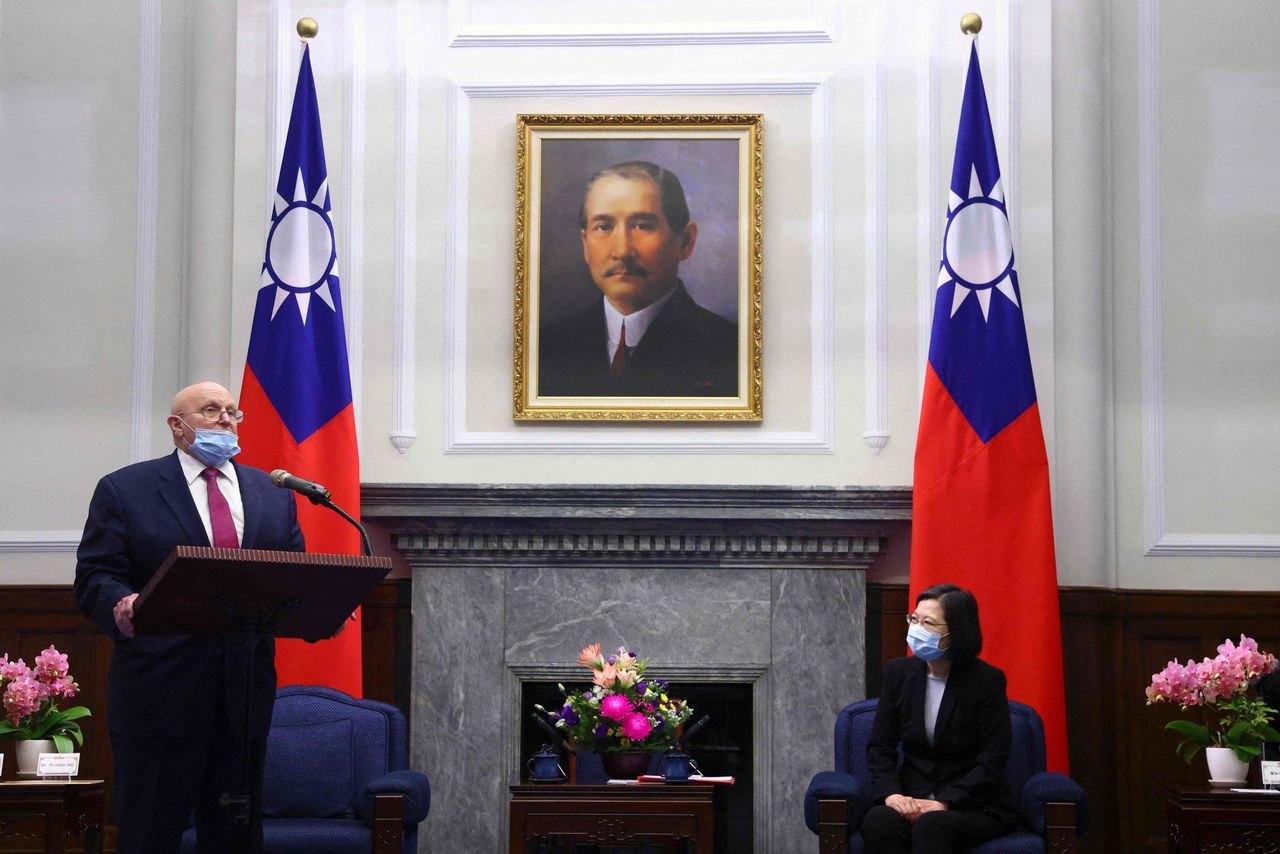Hong Kong News

Chinese ambassador warns US its strengthened Taiwan ties could lead to war
China’s ambassador to the US on Friday accused Washington of encouraging Taiwan to seek independence and said that such moves raised the risk of military conflict.
“The Taiwan issue is the biggest tinderbox between China and the United States,” Ambassador Qin Gang said in an interview with National Public Radio.
“If the Taiwanese authorities, emboldened by the United States, keep going down the road for independence, it most likely will involve China and the United States, the two big countries, in the military conflict,” he added.
Qin’s comments follow a string of engagements between US and Taiwanese government officials that have led Beijing to accuse Washington of violating the one-China principle that has served as a foundation for the nations’ relationship.
In April, US President Joe Biden dispatched former US senator Christopher Dodd and former deputy secretaries of state Richard Armitage and James Steinberg to Taiwan, in what a White House official called a “personal signal” of the president’s commitment to the democratic government of the island, which Beijing claims is a renegade province.
The US State Department announced around the same time a new policy to “encourage” engagement between American and Taiwanese government officials, a move made to bring Washington into compliance with a law signed by former president Donald Trump.
Three months earlier, Trump, in his final days in office, authorised then-US ambassador to the UN Kelly Craft to speak to Taiwan’s President Tsai Ing-wen via a video link.
Signals of American support for Taipei continued this week in the form of a clause in a new bill in the House of Representatives that targets China.
If the legislation becomes law, it would direct the US secretary of state to move toward changing the name of Taiwan’s de facto embassy in Washington, the Taipei Economic and Cultural Representative Office, to the “Taiwan Representative Office in the United States”.
The bill’s text said the potential name change would be “reflective of the substantively deepening ties between Taiwan and the United States”.
Washington’s commitment to the one-China principle, part of the agreements that led to the formal diplomatic recognition of the People’s Republic of China in 1979, does not expressly forbid contact between US and Taiwanese officials, but such meetings had traditionally been avoided for the sake of stable relations with Beijing.
 Former US deputy secretary of state Richard Armitage speaks during a
meeting with Taiwanese President Tsai Ing-wen at the presidential office
in Taipei on April 15.
Former US deputy secretary of state Richard Armitage speaks during a
meeting with Taiwanese President Tsai Ing-wen at the presidential office
in Taipei on April 15.
In his interview with NPR, Qin also reiterated recent comments by President Xi Jinping, who said reunification of Taiwan with mainland China was the preferred option, but added that Beijing would not rule out the use of force.
“We will do our utmost in the greatest sincerity to achieve a peaceful reunification,” Qin said. “But … that Taiwanese authority is walking down the road towards independence, emboldened by the United States.
“So China will not commit to giving up the unpeaceful means for reunification because this is a deterrence.”
Military activity in the Taiwan Strait has escalated in the past year, with the most recent move being People’s Liberation Army fighter jet incursions into Taiwan’s air defence zone this week.











